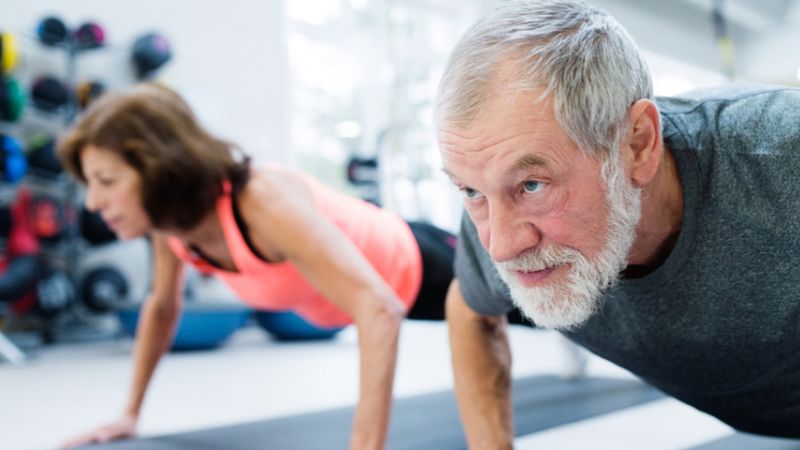Especially as we age, beginning an exercise routine can become a daunting task. Although a majority of people may believe that limiting physical activity leads to a decreased risk in falling, this is a major misconception. Staying physically active as we age actually helps restore our strength and flexibility along with promoting a longer and healthier life. Amid an abundance of recent studies, a study from Norway proved that there is a direct association between exercise and longevity in older men.
30 Minutes, 6 Days a Week
Close to 6,000 Norwegian men who were born between the years 1923 and 1932 and who had health checks in 1972 or 1973 and again in 2000 were involved in the study. After monitoring this large group of men over the course of 12 years, the following statistics were recorded:
- Out of the 2,000 men in the study who died in 2011, 51 percent were sedentary men while only 25 percent were moderately to highly active.
- The average lifespan of men living a sedentary lifestyle in their 40s was five years shorter than those men who were living a highly active lifestyle.
- Participants’ risk of death was lowered by 40 percent by simply being moderately active for 30 minutes six days a week.
According to the lead study author Ingar Holme, “Even in the elderly, there is a lot to gain by being moderately active as compared to being sedentary.” Not only can exercise promote longevity, but it can also prevent mental decline, maintain muscle strength, increase social interactions, promote coordination and balance along with reducing your fall risk.
Even though this study solely focused on the correlation between exercise and longevity in older men, other research out there has shown that similar benefits are also seen in women.
Getting Started
The whole purpose of this study was to prove that it’s never too late to exercise! Here are some tips on how you can kick-start your exercise program:
- Speak with your physician. Just like anything else, some exercises may be better or worse for each individual, so be sure to speak with your physician first. Physicians and personal trainers may also have some ideas of different exercises you can try.
- Do what you enjoy. You’ll be much more likely to exercise if you actually enjoy what you’re doing. Whether you enjoy jogging or a low-impact exercise like yoga, choose an exercise you find comfortable and enjoyable.
- Make and follow a routine. Creating a routine featuring a variety of exercises decreases your chances of becoming bored of exercising. As long as they are cleared by your physician, don’t be afraid to try new exercises. Even exercising at about the same time every day can help keep you motivated.
- Use the buddy system. Exercising with a friend is not only a great way to socialize, but your friend can also serve as a great motivator – after all, it’s harder to avoid exercising when you already made plans to do so with a friend.
- Keep an exercise journal. In our busy lives, mentally keeping track of how long we exercise for can be tough, which is one reason why an exercise journal is a great tool. A journal can also help you realize your fitness goals.
- Share your goals and achievements. Sharing your goals with others can help you stay on track to achieving them. We all have those days when exercising is the last thing we feel like doing, but your family and friends can give you that encouragement just when you need it most. Even just a little exercise can go a long way, so be sure to celebrate your achievements and continue to strive towards living a healthy lifestyle.

